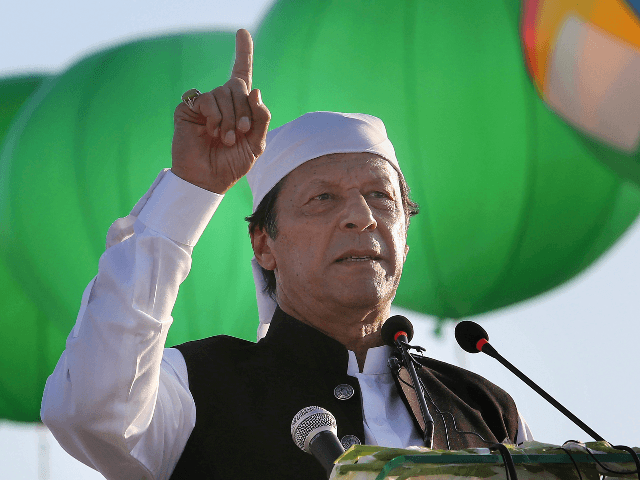Afghanistan may “descend into a civil war” if the Taliban fails to include competing factions in the country’s new government, Pakistani Prime Minister Imran Khan told the BBC this week, Pakistan’s Dawn newspaper reported Wednesday.
“If they do not have an inclusive government, and gradually it descends into a civil war, which if they do not include all the factions sooner or later … they will have, again, sort of a civil war. That too will impact Pakistan,” Khan told the BBC in a television interview conducted in English and Urdu broadcast on September 21.
“It will mean an unstable, a chaotic Afghanistan,” he continued
“[That is an] ideal place for terrorists, because if there is no control or if there is fighting going on. And that is our worry. So terrorism from Afghan soil, and secondly if there is a humanitarian crisis or a civil war, a refugee issue for us,” Pakistan’s prime minister said.
Earlier in the interview, Khan indicated his definition of an “inclusive” government was one which unites “all the factions” vying for power in Afghanistan, including groups outside of the Taliban, and one in which “all the ethnic groups [of Afghanistan] are represented.”
“There will not be any long term, sustainable peace in Afghanistan unless all the factions, all the ethnic groups are represented [in the Taliban government],” Khan told the BBC.
Some foreign news outlets seem to have interpreted the Taliban and Khan’s recent use of the word “inclusive” to describe Afghanistan’s future government to mean it would include women. This does not appear to be what either the Taliban or Khan have meant when they use the word “inclusive,” as they have both immediately mentioned diverse ethnic groups and non-Taliban groups within Afghanistan before or after using the adjective.
“To show the new government’s ‘inclusiveness,’ the group will give non-Taliban people opportunities to work for the government,” Taliban government spokesman Zabihullah Mujahid told reporters at a press conference in Kabul on September 21, as quoted by the state-run China Global Television Network (CGTN).
Taliban spokesman Sayed Zekrullah Hashimi flatly denied on September 9 that his organization would include women in its interim cabinet, a body that will oversee the nascent Taliban government’s continued formation.
“It is not necessary for a woman to be in the cabinet,” Hashimi told Afghanistan’s Tolo News in a television interview.
“The women of Afghanistan are those who give birth to the people of Afghanistan, educates them on Islamic ethics … what a woman does she cannot do the work of a ministry. You put something on her neck that she cannot carry,” he said.
The Taliban has so far not included any women in its still-forming government since it seized power in Afghanistan on August 15. The hardline Sunni Muslim group continues to indicate that it will not do so in the future. The Taliban filled the remaining 17 seats of its interim cabinet on September 21 with all-male ministers and deputy ministers.

COMMENTS
Please let us know if you're having issues with commenting.